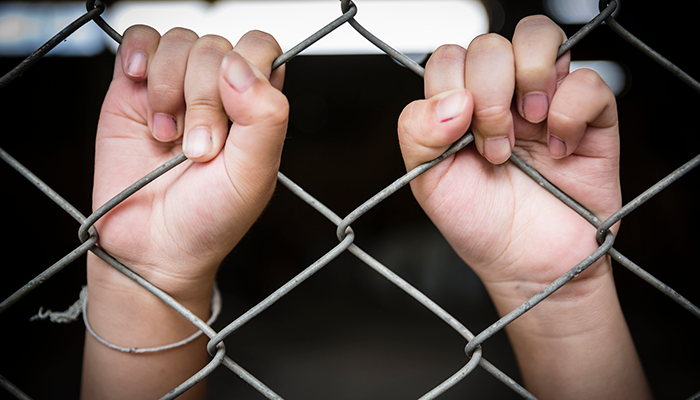
In the latest figures we published for 2017, we hailed a 68% reduction in child arrests since 2010.
That is a massive achievement by the police and a testament to our successful campaigning on the issue.
In 2010, there were 245,763 child arrests in England and Wales. Last year, there were 79,012.
This is a victory not just for the protection of young people – but also public services.
A major longtitudinal study in Edinburgh has shown how damaging police involvement with children – even informally – can be.
A large body of research in youth justice demonstrates how the further involved children become in the criminal justice system, the more entrenched in offending they become.
This has demand implications for the police, the courts and the prison and probation services.
Some might think the drop in child arrests is directly linked to reductions in police funding. But these drops come along way after austerity started eight years ago.
‘It is striking that just as child arrests have fallen by more than two thirds since 2010, the number of children in custody has also fallen broadly by two thirds.’
And a while after ‘offences brought to justice’ (OBTJ) targets were relaxed in 2008.
Before this happened high rates of child arrests were partly driven by these perverse police performance targets.
Under targets, police forces were ranked on how many arrests they made.
The more arrests made, the better the force.
This encouraged a blanket approach which squeezed all the common sense and discretion out of policing.
It had a disproportionate impact on children, who might come to the attention of the police – often for trivial misbehaviour – but for whom an arrest should be the last, not the first, resort.
Now the police are able to use their discretion and focus resources on where they are most needed, which goes hand in hand with encouraging officers not to arrest children unnecessarily.
This, of course, reduces the pressure on the prison services.
It is striking that just as child arrests have fallen by more than two thirds since 2010, the number of children in custody has also fallen broadly by two thirds.
This confirms the importance of the police gatekeeping the system and protecting children from unnecessary involvement in it.
At every level from point of arrest all the way to the most serious cases where custody has been deemed to be required, there are less children trapped in the system.
It is too early to say whether this will have an impact on the adult prison population.
There are promising signs, however.
The number of young adults aged 18-21 in prison has fallen by over a third since 2011, which supports the research and suggests better gatekeeping by the police has indeed prevented thousands more young people becoming further entrenched in crime.
It also means that pressure on our already overcrowded prisons has been relieved, if only slightly.
The resource benefits for a criminal justice system, which is struggling with the impact of cuts, is one thing.
But there are also benefits for government more widely.
Some children coming to the attention of the police don’t need any intervention at all – other than perhaps a phonecall to mum or dad.
But some are in trouble and their behaviour is a sign of that trouble.
An arrest is seldom the answer, however.
The police are increasingly diverting such children to social services and mental health support, sometimes via specialist staff based in police custody.
And while this may place an immediate burden on local authorities or health services, it is exactly this kind of early prevention which is most likely to nip problems in the bud and help these children out of a need for resource - intensive public services later in life.
The story of falling child arrests is the story of intelligent policing and seeing children in trouble with the law through the lens of a whole system approach.
Whether the future sees further cuts to public services or more investment, the lessons learned here should not be forgotten.


















